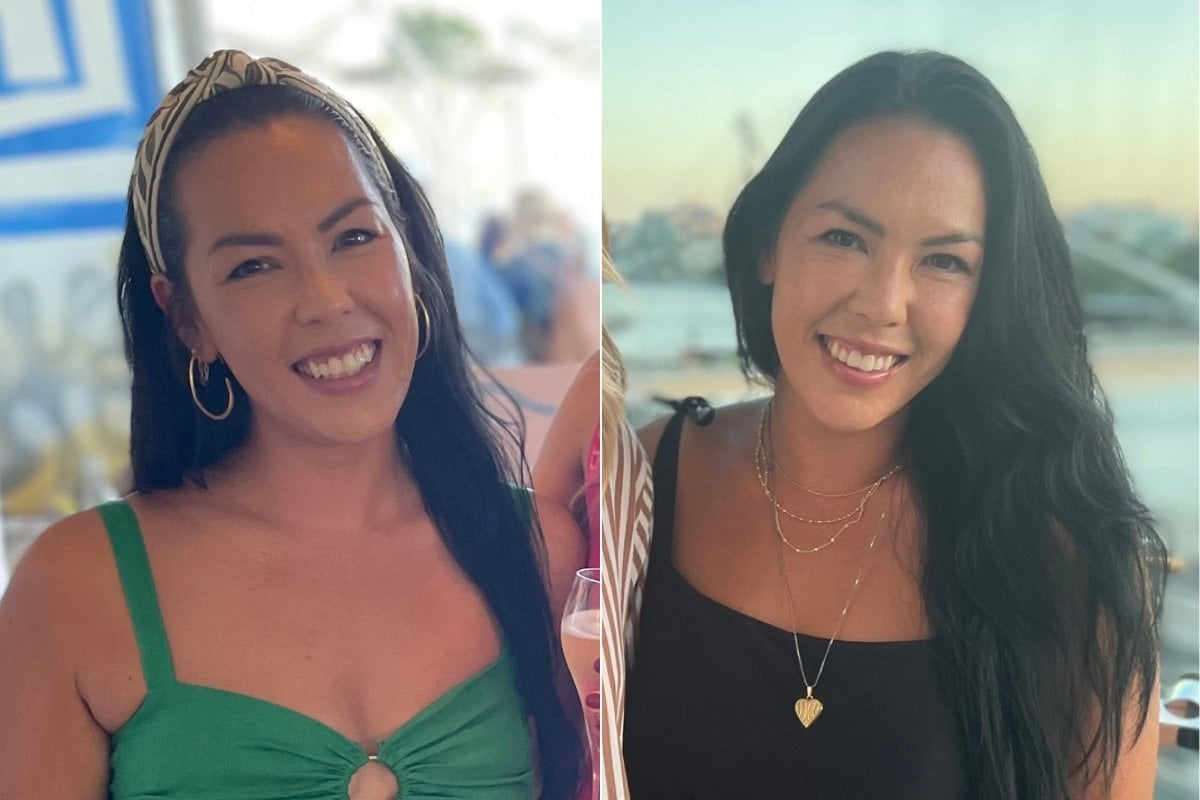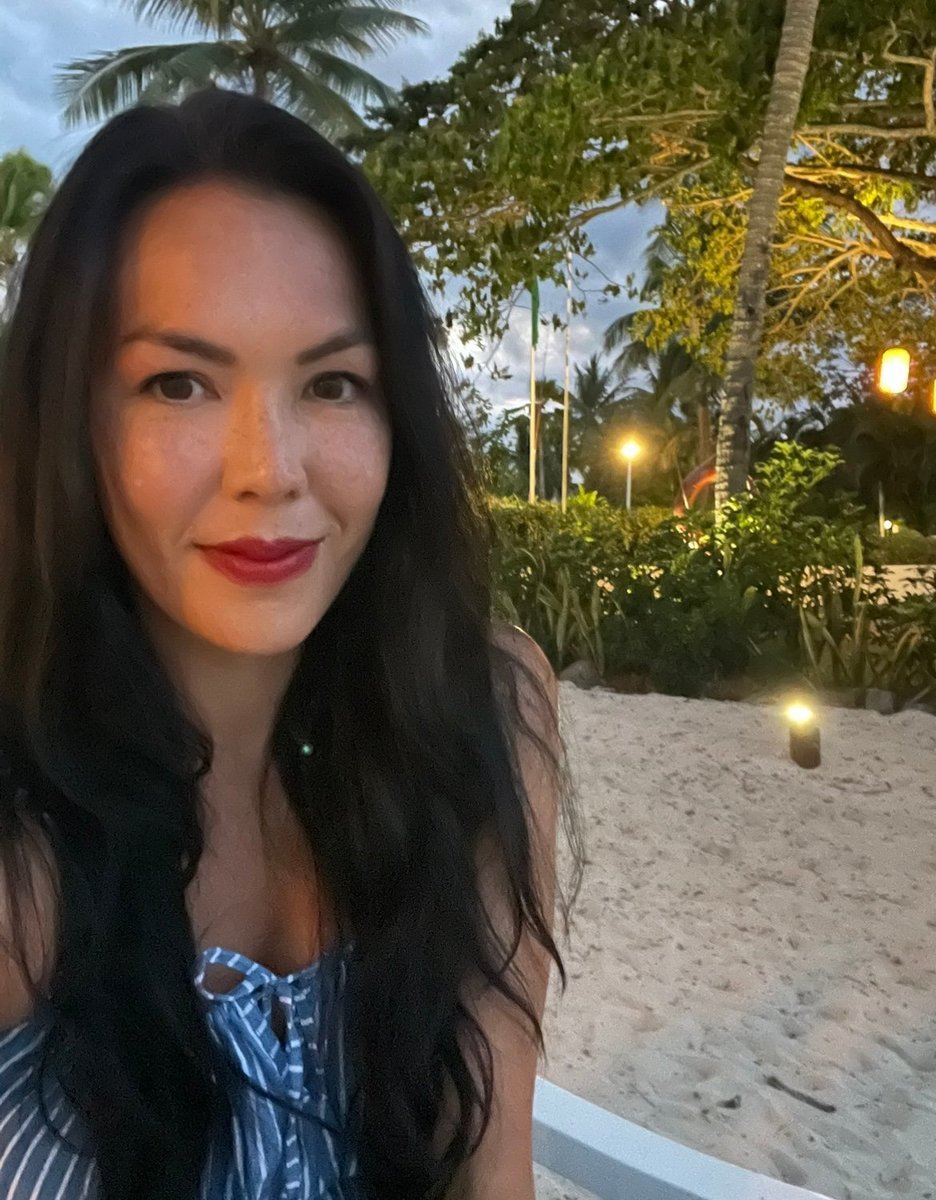‘My dad made a comment about my body when I was 16. The impact has lasted decades.'

This post discusses disordered eating.
“Geez Niki, your bum is getting big!”
My dad laughed after he said it, indicating that he meant it not as a cruel statement but a casual aside, wedged in between conversations about school and family.
As a child of divorce, I didn’t grow up with my father, so visits with him were usually few and far between. On this particular occasion, it must have been at least a few years since I’d last seen him, in which time I had inevitably gone through puberty and naturally changed shape.
I remember rolling my eyes when he said it and saying, “Thanks Dad”, as my older sisters scolded him for his tactlessness. It was probably the worst possible thing you could say to an impressionable teen.
The ironic thing was, up until that point, I had honestly never really had any qualms about my body - the size of it, the shape of it, the look of it. I had school friends who had already succumbed to eating disorders and the usual physical torments of being a changing teenage girl, but somehow, I had sailed through to Year 11 without those invasive thoughts filling my head.
Watch: Fat-shaming comment on MasterChef Australia. Post continues after the video.
Turns out, I wasn’t the rare, lucky one who was spared the often lifelong struggle of learning to love your body - I just hadn’t been triggered into hating it yet.
Soon after that ‘big bottom’ quip, I found myself - annoyingly, automatically - fixating on my behind.This was at least 10 years before Kim Kardashian and her curvy sisters made more feminine bodies desirable, and the last thing you wanted anything on your body to be described as was “big”.
I’ve worn jeans only a handful of times in my life because they’ve never felt comfortable or sat right.
Since that comment, I can’t really remember ever not feeling terrible about myself.
The only times I’ve ever been able to let go of the constant guilt about what I’m eating is when I’ve been pregnant, and felt entitled to give my mind - and body - a much-needed break from incessant thoughts about weight. And of course, that little devil on the shoulder popped right back up once my two babies were out, and the pressure of the “body bounceback after baby” journey quickly began.
I really don’t think my dad meant anything by it, and I’m certainly not blaming him for my many years of body issues that followed. That would be unfair, when you take into account the glossy beauty magazines I browsed through when I was growing up, my subsequent career in body-obsessed celebrity magazines (sifting through images from the annual Victoria’s Secret Fashion Show, hello!) and later, the perfect-looking images on Instagram that have moulded my ideals of body image ever since.
 Image: Supplied
Image: Supplied
Is there a chance I would have been equally body-conscious had my dad never said that insensitive, clueless Dad-like thing about my changing, and very normal, body? Of course there is - a very high chance, if I’m being realistic. To an extent, I see worrying about your body as part and parcel of being a woman, as much as that truly sucks.
But looking back on it with fresh eyes, and as a parent myself, there’s no doubt that his words echoed in my ears for many years to come, in one form or another. And if there’s one thing it’s taught me about the impact of my own parenting, it’s that words matter just as much as actions.
Because of how that comment made me feel as a teenager, and the negative way I’ve viewed my body ever since, I’m super-aware of anything body-related that I say to or around my five-year-old daughter. I’m conscious about how to word it when she asks me why people exercise, and I’m constantly trying to find the right way to educate her about how we all come in different shapes and sizes, and how that’s more than okay.
Even if I still can’t apply that body positivity to myself, I desperately want her to have as many years as possible where she’s carefree and fun-loving - and not preoccupied with that extra fold of skin or a number on the scales.
For help and support for eating disorders, contact the Butterfly Foundation’s National Support line and online service on 1800 ED HOPE (1800 33 4673).
Featured Image: Supplied
Our best parenting stories of the day, directly in your inbox.
Top Comments